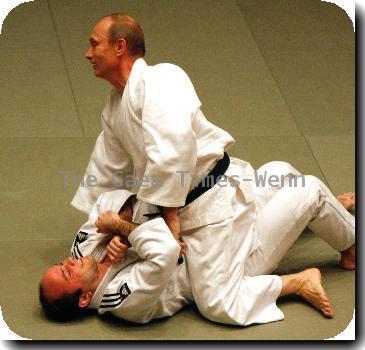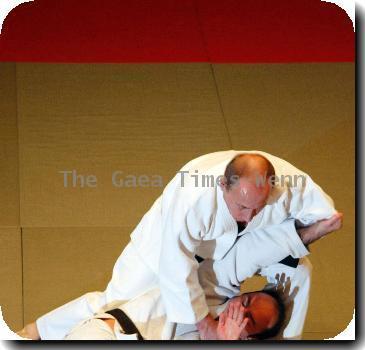Rights groups says police action has led to sharp drop in racist violence in Russia
By Peter Leonard, APWednesday, January 27, 2010
Rights group: Racist violence drops in Russia
MOSCOW — Racially motivated violence in Russia dropped sharply in 2009 due to a more vigorous effort by police and a shift in tactics by extremist groups, a human rights group said Wednesday.
The Moscow-based group Sova, which monitors hate crimes in Russia, said 71 people were killed and 333 wounded in racist attacks last year, down from 110 killed and 487 wounded in 2008.
Galina Kozhevnikova, deputy head of Sova, called it the first significant drop in such attacks since the group began collating statistics in 2004.
“We cannot but be happy about the fact that the number of deaths is decreasing,” she said.
The findings appear to vindicate government claims it is trying to combat racist violence, although they appear to contradict a statement by Prime Minister Vladimir Putin this week. He said that the number of racist crimes decreased twofold last year.
As in previous years, most of the victims in 2009 were dark-skinned, non-Slavic migrant laborers from former Soviet republics in Central Asia, mainly Tajikistan and Kyrgyzstan, and the Caucasus.
The number of ultranationalist and neo-Nazi groups mushroomed after the 1991 Soviet collapse as a dramatic economic decline and a collapse of the old values spread social frustration, particularly among youths.
Soaring numbers of migrants traveling to Russia from ex-Soviet subjects for poorly paid work in recent years have created lingering resentment among some of the country’s most deprived sectors of society.
Putin has in the past strongly condemned xenophobic movements, describing them as “a time bomb under the country’s statehood.”
Sova’s annual report says the decline in reported attacks was mostly due to police efforts to break up the largest and most aggressive extremist groups in Moscow and the surrounding region.
Prosecution and conviction rates for racist violence and propaganda also are increasing, Sova said.
But racist violence remains rampant across most regions of Russia and still claims hundreds of victims annually, Sova said.
Kozhevnikova said ultranationalists have switched tactics and targets, increasingly turning to bombings, arson and vandalism rather than random assaults on suspected foreigners.
Increasingly, attackers target police stations, officers investigating hate crimes, government offices and non-governmental organizations, she said.
“Last year, we can say with some certainty that we registered 20 such incidents,” Kozhevnikova said.
Sova’s report noted that while explicitly racist propaganda is on the wane, extreme right-wing groups have publicly adopted the rhetoric of more mainstream patriotic groups.
“Racist propaganda is becoming a matter for closed meetings,” the report said.
At the same time, some mainstream political parties have adopted xenophobic rhetoric to draw recruits, the report said.
Pro-Kremlin youth groups, in particular, have come under attack for using openly racist and nationalist messages in their government-sponsored campaigns.
An activist of Young Guard, the youth wing of the dominant Kremlin party United Russia, last year published a revisionist article about the Holocaust on the group’s official Web site.

